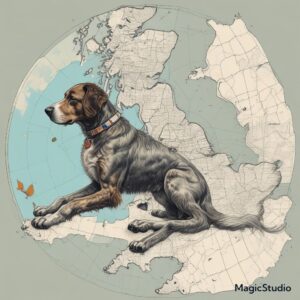A recent analysis of UK skilled worker visa data has revealed that professional dog walkers are among the occupations eligible for work visas. According to Home Office records, 334 visas were issued for “animal care service occupations,” which include dog walkers and groomers.
Skilled Worker Visa
This finding, uncovered by an Oxford academic, has sparked discussion about how the UK categorizes skilled professions. The inclusion of dog walking on the list suggests that demand for pet care services is high enough to justify hiring workers from abroad.
While some may view dog walking as an unskilled job, professional dog walkers require a range of competencies. They must understand canine behaviour, manage multiple dogs at once, handle emergency situations such as injuries or lost pets, and ensure dogs receive appropriate exercise and socialisation. Many also run their own businesses, requiring skills in client communication, scheduling, and financial management.
Dog Walking Skills
To enhance their expertise, many dog walkers complete certifications such as Canine First Aid, Professional Dog Walking diplomas, and qualifications in animal care from institutions like City & Guilds or the Institute of Modern Dog Trainers (IMDT). Some councils and professional bodies also require licensing or insurance to operate legally, ensuring high standards in pet care and safety.
The rising popularity of dog walking as a professional career reflects broader societal shifts in pet ownership and animal welfare. With more urban professionals working long hours, the demand for specialised pet care services has skyrocketed.
Dog walkers are no longer seen as casual laborers but as essential providers of physical and mental stimulation for pets, playing a crucial role in animal health and owner peace of mind. But those of us who have ever done the job already knew this 😉
Moreover, the international recognition of dog walking as a skilled profession highlights the growing complexity of pet care in the modern world. Advanced training programs now teach dog walkers not just basic handling skills, but also advanced techniques in canine psychology, nutrition, and behavioural management. This professionalisation means that international dog walkers bring diverse expertise and global perspectives to the UK’s pet care ecosystem, potentially introducing innovative approaches to animal welfare and service delivery.
